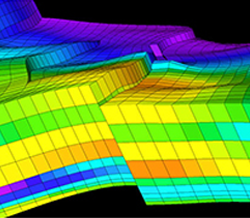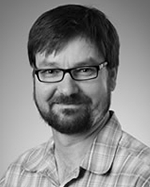
Dustin Sweet, PhD
Texas Tech University
Dr. Dustin E. Sweet holds a PhD (2009) in Geology from the University of Oklahoma and a MSc (2003) and a BSc (2000) in Geology from Boise State University. Upon completion of his PhD, Dr. Sweet worked as an exploration geologist at Chevron Energy Technology Company until he joined the faculty at Texas Tech University in the fall of 2011. During his time at Chevron, Dr. Sweet’s chief role was developing new plays and prospects in new venture opportunities, largely in West Africa. Dr. Sweet’s areas of expertise include process sedimentology, chemical weathering in soil profiles, and stratigraphy. He uses those skills to unravel climatic and tectonic history from the sedimentary record, predominantly within late Paleozoic basins in the United States and Quaternary strata on the Southern High Plains. He currently serves as leader of the Geology Theme for the Center for Geologic Storage of CO2, where he brings his sedimentologic and weathering skills to bear on understanding the character of the interval near the great unconformity in the mid-continent. He enjoys camping with his wife and three boys wherever late Paleozoic strata are exposed.
|
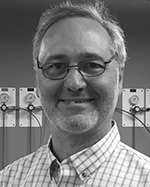
Paul Sylvester, PhD
Texas Tech University
Paul Sylvester is the Endowed Pevehouse Chair Professor of Geosciences at Texas Tech University. He has held research and teaching positions at NASA Johnson Space Center, The University of Chicago, Australian National University, and Memorial University of Newfoundland. His research interests are focused on mineral geochemistry and geochronology using microbeam instruments, particularly LA-ICP-MS. He holds a BSc degree from Purdue University and a PhD degree from Washington University in St. Louis. He is a Fellow of the Geological Society of America and Mineralogical Society of America; Editor-in-Chief of Minerals; and Joint-Editor-in Chief of Geostandards and Geoanalytical Research.
|
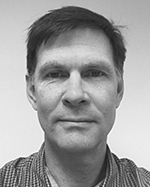
Steve Whittaker, PhD
University of Illinois, Urbana-Champaign
Dr. Steve Whittaker is the Director of Energy Research & Development at the Illinois State Geological Survey, which is a part of the Prairie Research Institute at the University of Illinois. He leads a team with wide-ranging research interests in efficiencies around subsurface resources, including carbon capture and storage. He was previously based in Perth, Australia, where he was Research Group Leader for Reservoir Dynamics with the Commonwealth Scientific and Industrial Research Organisation (CSIRO), working on deploying carbon storage technology at the industrial scale in Australia and globally. Steve also serves as Chair of the TC265 committee developing ISO 27914, an international standard for geological storage of CO2. Previously, he was Principal Manager for Geologic Storage of CO2 at the Global CCS Institute in Canberra, Australia, and Chief Technology Manager at the Petroleum Technology Research Centre in Canada. In the latter position, he managed a program studying storage and monitoring of CO2 injected into a depleting oil field for enhanced oil recovery at Weyburn, Saskatchewan, which is among the world’s largest monitored CO2 injection sites. Steve is a geologist with a PhD from the University of Saskatchewan, Canada, and has worked in petroleum and carbon storage related fields for more than 20 years.
|
 |
Clastic Sedimentology
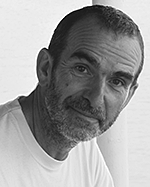
Jim Best, PhD
University of Illinois, Urbana-Champaign
Dr. Jim Best is the Jack and Richard Threet Chair in Sedimentary Geology, University of Illinois, where he holds appointments in the Departments of Geology, Geography and GIS, Civil and Environmental Engineering, and Mechanical Science and Engineering. Dr. Best’s research interests center around process sedimentology and geomorphology through the study of modern and ancient sedimentary environments and investigations of the coupling between fluid flow, sediment transport, and morphological development using laboratory, experimental, numerical, and field-based approaches. His work has ranged across scales, including study of turbulence modulation in fluid flows and the morphodynamics of bedform development; the dynamics and deposits of some of the World’s largest rivers (including the Jamuna, Parana, Mekong, Amazon, Mississippi, and Columbia Rivers) with an emphasis on multichannel braided rivers; study of sediment-laden density flows in the laboratory; contemporary glacial lakes and ancient deep-sea deposits; basin analysis of Carboniferous clastic sediments; and study of deltaic processes, form, and deposits. Dr. Best received his BSc from the University of Leeds, UK, and PhD from the University of London, UK, and has held previous positons at the universities of Hull and Leeds, UK, the latter as lecturer, Reader in Experimental Sedimentology and then personal chair in Process Sedimentology. Best has been awarded the Gordon Warwick prize from the British Geomorphological Research Group for outstanding contributions to geomorphological research and scholarship and has held fellowships awarded by the Royal Society of London, the Nuffield Foundation, and Leverhulme Trust. Dr. Best is currently a Faculty Fellow of the National Great Rivers Research and Education Center and holds a Diamond Jubilee International Visiting Research Fellowship from the University of Southampton, UK.
|
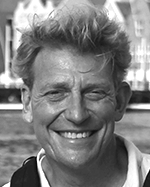
Bruce Fouke, PhD
University of Illinois, Urbana-Champaign
Dr. Bruce Fouke is a Professor in Geology, Microbiology, and the Institute for Genomic Biology at the University of Illinois Urbana-Champaign. He also serves as Director of the Illinois Roy J. Carver Biotechnology Center. Dr. Fouke works at the cross-disciplinary intersection of geology and molecular microbiology (Geobiology), with emphasis on the emergence and survival of Life within the context of dynamic Earth processes. Results have direct application to a wide variety of societal interests that range from energy and human medicine to environmental sustainability and space exploration. Dr. Fouke completed his B.Sc. at Bradley University, M.Sc. degrees at the University of Iowa and the University of Chicago, and his Ph.D. at the State University of New York at Stony Brook. He then went on to complete postdoctoral appointments at the Free University Amsterdam, the University of California Berkeley, and NASA Exobiology at Moffett Field. Dr. Fouke was recently awarded the Illinois Campus-Wide and Dean awards for Excellence in Undergraduate Teaching, and the Broadrick-Allen Award for Excellence in Teaching in the Illinois Campus Honors Program. Dr. Fouke has held professorships at Lund University, Sweden, and the Illinois Center for Advanced Studies, and has served as an American Association of Petroleum Geologists (AAPG) Distinguished Lecturer in the Asia-Pacific Region and the United States.
|
|
|

|
Basin and Site Scale Geology and Characterization
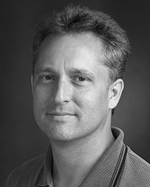
Scott M. Frailey, PhD
University of Illinois, Urbana-Champaign
Dr. Scott M. Frailey is the Director of the GSCO2 and the chair of the Executive Committee. He provides scientific and technical leadership, as well as maintaining the functionality of the Center in terms of communication, collaboration, personnel assignments and recruitment of staff and advisory committee members. Scott's specific research is in the area of reservoir characterization that includes core analyses, well log analyses, and pressure transient analyses to provide reservoir rock properties to geocellular models for use in multiphysics flow and transport modeling.
|

